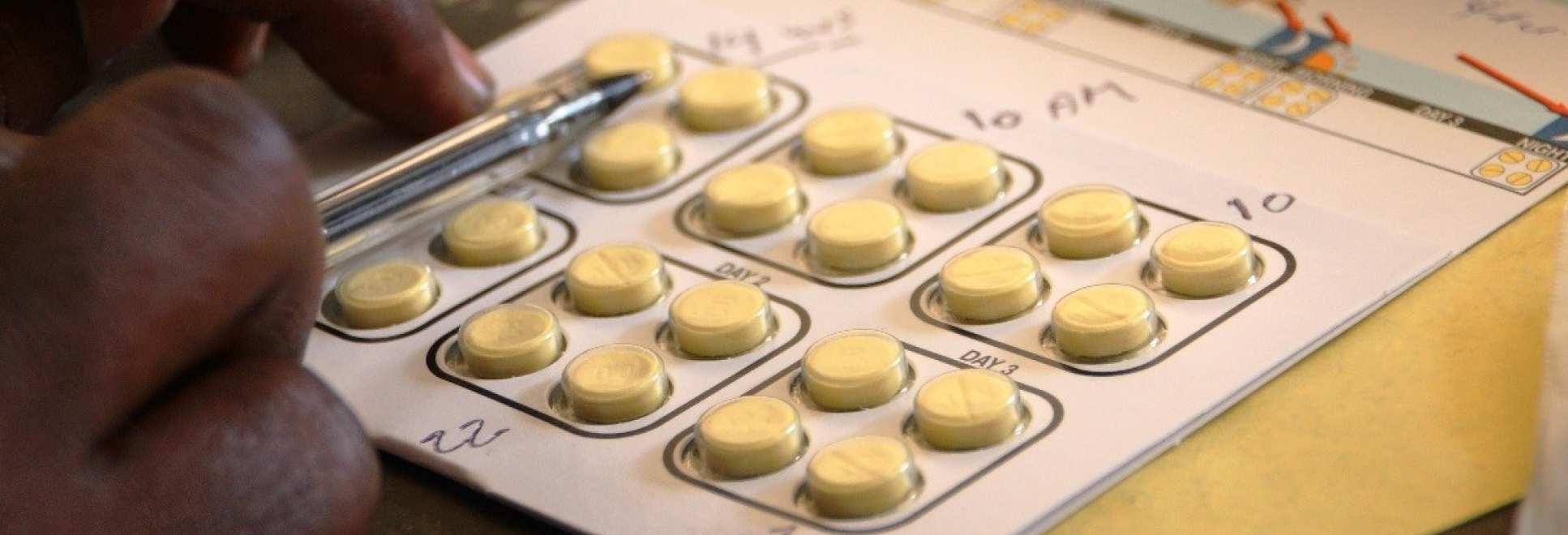
People
Project information
Artemisinin combination therapies (ACT) are the primary malaria therapeutics globally for treating uncomplicated P. falciparum malaria cases. They contain an artemisinin derivative and one of several longer-acting partner drugs. Treatment has an important impact not only in curing disease, but in preventing it from becoming more severe, preventing onward transmission to mosquitoes, and providing a period of post-treatment prophylaxis.
We have quantified the impact of rapid, effective treatment in preventing progression of malaria from uncomplicated disease to severe malaria in collaboration with a large number of research groups who contributed primary individual patient data to a meta-analysis. We are using these results to model the effect of interventions which improve access to treatment. We have also analysed equity in access to treatment from community health worker programmes.
We have modelled the impact of different artemisinin combination therapies on population levels of malaria transmission, finding that the impact depends on transmission intensity and the extent of seasonal variation in transmission. We have quantified the duration of post-treatment prophylaxis provided by the ACT partner drugs piperaquine, lumefantrine and amodiaquine by fitting models to clinical trial data.
Recent publications
Mousa A, Al-Taiar A, Anstey NM, Badaut C, Barber BE, Bassat Q, Challenger JD, Cunnington AJ, Datta D, Drakeley C, Ghani AC, Gordeuk VR, Grigg MJ, Hugo P, John CC, Mayor A, Migot-Nabias F, Opoka RO, Pasvol G, Rees C, Reyburn H, Riley EM, Shah BN, Sitoe A, Sutherland CJ, Thuma PE, Unger SA, Viwami F, Walther M, Whitty CJM, William T, Okell LC. The impact of delayed treatment of uncomplicated P. falciparum malaria on progression to severe malaria: A systematic review and a pooled multicentre individual-patient meta-analysis. PLoS Med. 2020
Bretscher, M.T., Dahal, P., Griffin, J., Stepniewska K, Bassat Q, Baudin E, D'Alessandro U, Djimde AA, Dorsey G, Espie E, Fofana B, Gonzalez R, Juma E, Karema C, Lasry E, Lell B, Lima N, Menendez C, Mombo-Ngoma G, Moreira C, Nikiema F, Ouedraogo JB, Staedke SG, Tinto H, Valea I, Yeka A, Ghani AC, Guerin PJ, Okell LC. The duration of chemoprophylaxis against malaria after treatment with artesunate-amodiaquine and artemether-lumefantrine and the effects of pfmdr1 86Y and pfcrt 76T: a meta-analysis of individual patient data. BMC Med 2020.
Winskill P, Mousa A, Oresanya O, Counihan H, Okell L, Walker P. 2021. Does integrated community case management (iCCM) target health inequities and treatment delays? Evidence from an analysis of Demographic and Health Surveys data from 21 countries in the period 2010 to 2018, Journal of Global Health, Vol: 11, Pages: 1-10
Challenger JD, Bruxvoort K, Ghani AC, Okell LC. 2017 Assessing the impact of imperfect adherence to artemether-lumefantrine on malaria treatment outcomes using within-host modelling. Nat Commun. 8(1):1373.
Okell LC, Cairns M, Griffin JT, Ferguson NM, Tarning J, Jagoe G, Hugo P, Baker M, D’Alessandro U, Bousema T, Ubben D, Ghani AC. (2014). Contrasting the benefits of different artemisinin combination therapies as first-line malaria treatments using model-based cost-effectiveness analysis. Nat Commun 5; 5606.